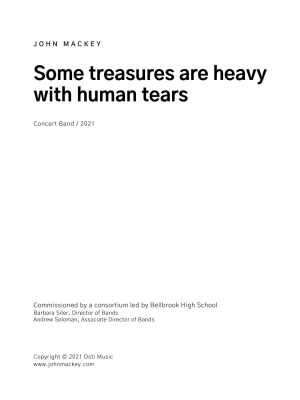Opens in a new window
Osti Music Some treasures are heavy with human tears - Mackey - Concert Band - Gr. 3
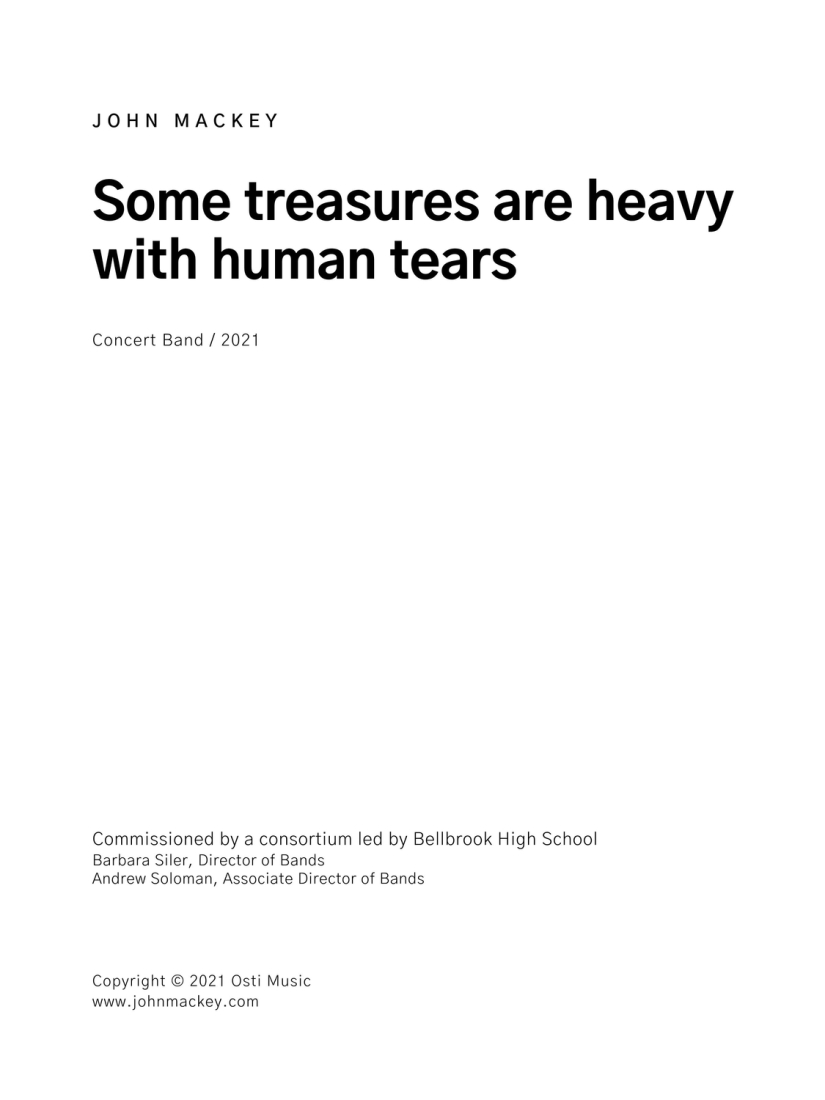
Additional Photos:
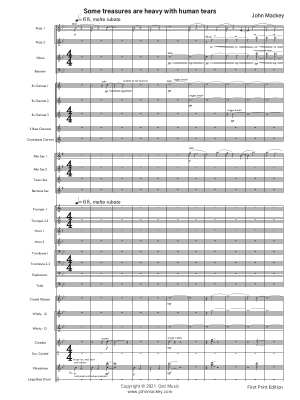
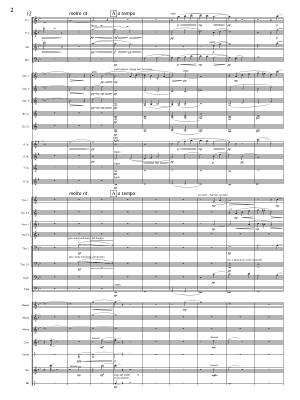
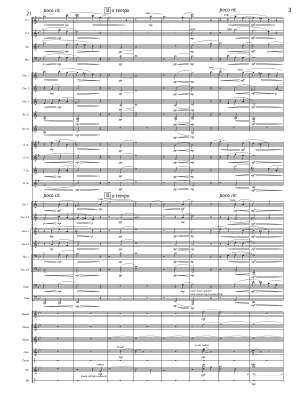
- Composer/Author: MACKEY, JOHN
- Instrumentation: CONCERT BAND
- Genre: FESTIVAL
- Grade/Level: 3.0
- Model # OSTI24
Format: Score and Parts
Instrumentation: Concert Band
Level: 3
(CONTENT WARNING: This program note describes an act of public mass violence and may be traumatic or uncomfortable to some readers. Discretion is advised.)
At 1:05 AM on Sunday, August 4, 2019 in the Oregon Historic District of Dayton, Ohio, a man armed with a semi-automatic AM-15 approached a crowded neighbourhood bar and opened fire. In under thirty seconds, he fired 41 rounds, killing nine people and injuring another 17.
That's where the story of John Mackey's Some treasures are heavy with human tears begins.
One of the victims of the shooting was a young woman who had played trumpet in her high school band in nearby Bellbrook. The Bellbrook program reached out to Mackey to commission a work that would commemorate the tragedy, a task he approached with some reluctance:
I've been asked on several occasions to write pieces in response to tragedies, but I've rarely felt like it was appropriate. Something about this, though--happening in Dayton, where I've been many times, and so close to Columbus, where I grew up--that I felt like I wanted to try to say something musically, even though I was at a loss for what I could say verbally. Fortunately, Abby (my spouse) found this incredible title, which says so much before the music even starts. The last thing the community needed was a piece of music that relived the event. The piece isn't trying to sound like what happened; it's trying to convey what it feels like to know that it happened.
The piece is not programmatic. Rather, it exists in abstraction: a meditation on grief. In framing the work in this way, Mackey's music transcends elegizing a singular horrific event and instead provides an artistic representation of how we cope with all tragedies, both those that are intensely personal and the ones that are communal. It explores a wide range of emotions, from denial through shock, fury, and anguish before finally finding an incomplete peace.
Some treasures are heavy with human tears begins with a simple motivic gesture: a rocking oscillation between flute and vibraphone that sounds akin to a lullaby. This principal motive carries throughout the piece, acting as the listener's avatar through the emotional journey. A melody spins out from it, accompanied by ethereal ringing provided by crystal glasses and whirly tubes, and although the overall mood is one of melancholy, the atmosphere is also peaceful until a disorienting fog of trombone glissandi passes over. The songlike melody continues, at times abruptly shifting from the resigned mood of the home key of G minor to the distantly bright C major, evoking a fleeting remembrance of a more hopeful spirit, before just as quickly dissipating back. The simplicity of the opening returns, but this time fuller, with more voices joining before the glissando cloud returns (this time augmented by timpani), ushering in a new mood: confusion. The opening gesture re-emerges, ceaselessly rocking in a rhythmic nature, oblivious to a building torment in the surrounding harmonies which become brasher and angrier as the piece approaches its dramatic climax. The apex of the piece is a wail, acknowledging the reality of the trauma in a moment of agony bordering on rage. This too, however, subsides, and the peacefulness of the beginning of the work returns to stay with one exception: as the final phrase of the work cadences and the last tones decay, a single muted trumpet rises from the silence in a bright flash and is suddenly extinguished.
Program note by Jacob Wallace
Duration: 5:30 - 6:30
Media
Sound Sample
Press play to listen
Q & A
There are currently no questions for this product.
Reviews
There are currently no reviews for this product. Be the first to write one!


